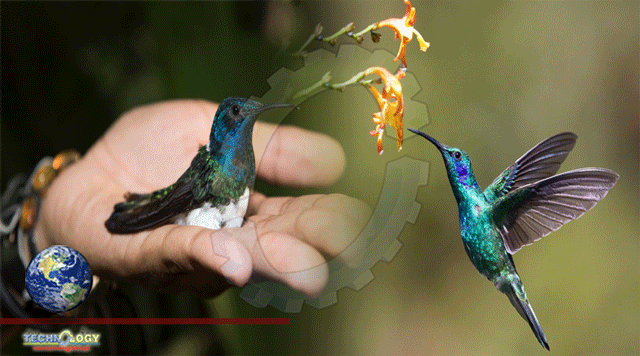Avian olfaction is not just limited to vultures and a few other bird species, according to new research from the University of California, Davis, and Riverside.

Vultures have a highly sensitive sense of smell, with some species being compared to ‘airborne bloodhounds.’ This is due in part to their large olfactory bulbs — tissue in the brain that controls smell.
However, hummingbirds’ olfactory bulbs are, like the rest of their bodies, extremely small.
Earlier studies were unable to demonstrate that hummingbirds showed a preference for the smell of flowers containing nectar. In addition, flowers pollinated by birds generally don’t have strong odors, unlike those pollinated by insects.
For these reasons, scientists did not previously believe the birds possessed the ability to smell things.
“This is pretty exciting, as it is the first clear demonstration of hummingbirds using their sense of smell alone to make foraging decisions and avoid contact with potentially dangerous insects at a flower or feeder,” said senior author Dr. Erin Wilson Rankin, a researcher in the Department of Entomology at the University of California, Riverside.
For their experiments, Dr. Rankin and colleagues allowed more than 100 hummingbirds to choose between two feeders, either sugar water alone, or sugar water plus one of several chemicals whose scent signaled the presence of an insect.
There were no visual differences between the two feeders offered in each of the experiments.
Tests included the scent deposited on flowers by European honeybees (Apis mellifera); an attraction chemical secreted by invasive Argentine ants (Linepithema humile); and formic acid, a defensive compound produced by wood ants (Formica francoeuri) which are known to harm birds as well as mammals.
The hummingbirds avoided both of the ant-derived chemicals, especially the formic acid.
However, they had no reaction at all to the honeybee scent, which is known to deter other bees from visiting flowers.
To ensure it was the chemical itself the birds were reacting to, and not simply a fear of new smells, the researchers did an additional test with ethyl butyrate, a common additive in human food.
“The study raises new questions about the underrated importance that scent plays in birds’ foraging decisions and specifically, hummingbird foraging,” Dr. Rankin said.
Originally Published By SciNews